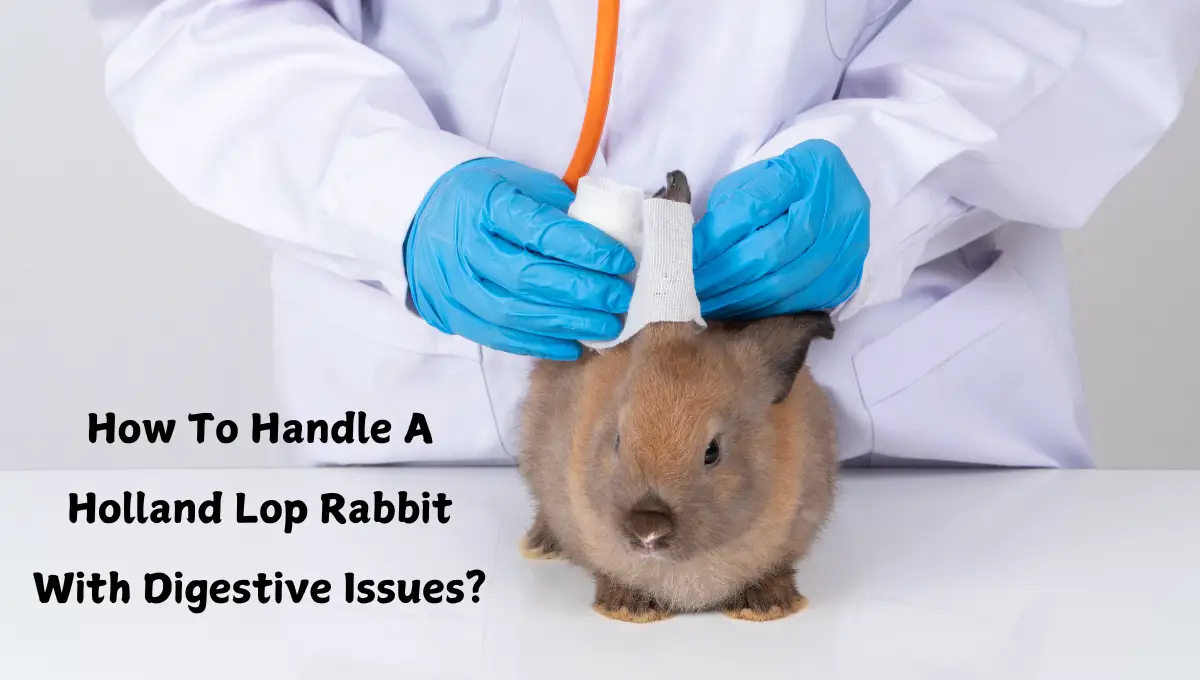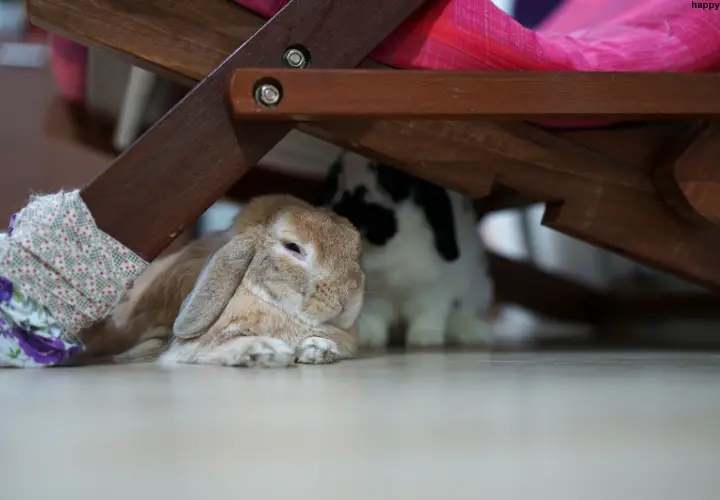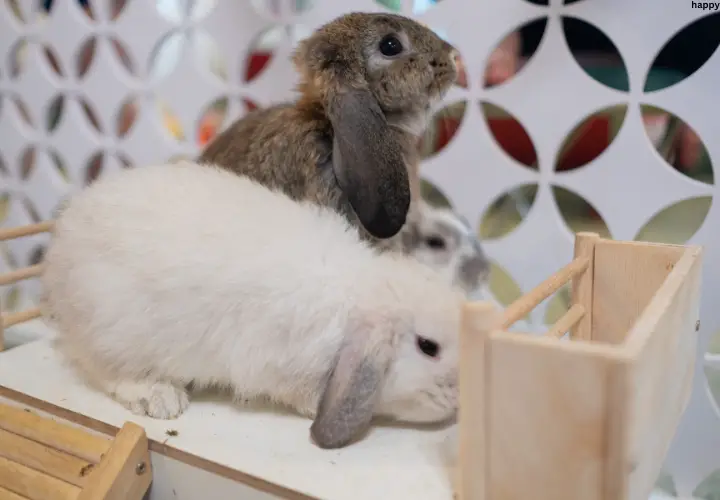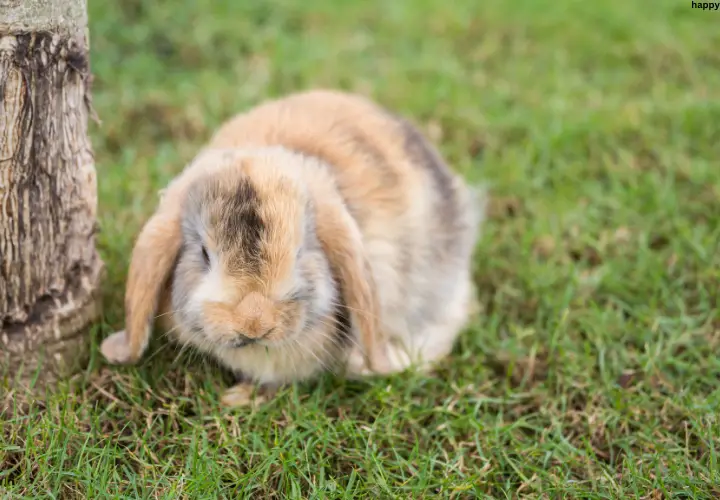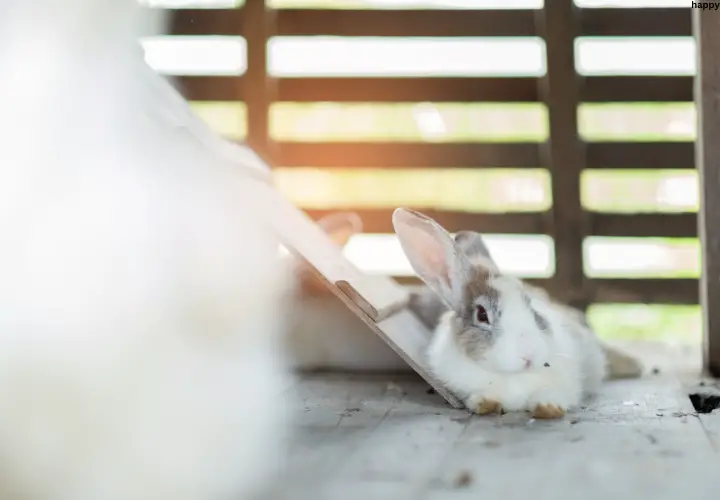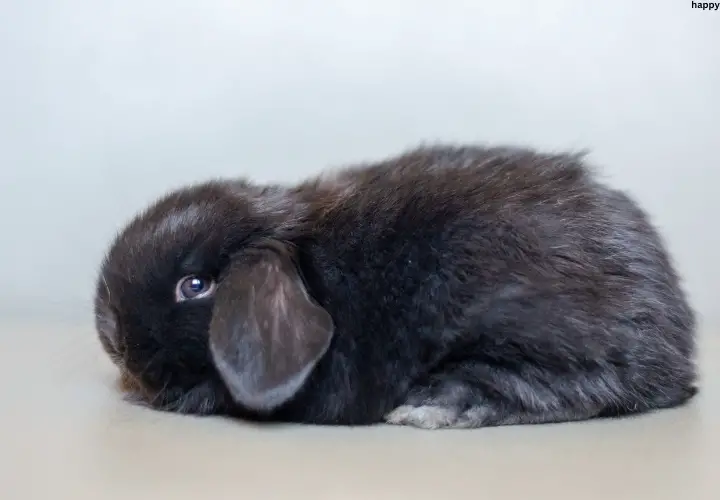How To Handle A Holland Lop Rabbit With Digestive Issues?
When a Holland Lop rabbit experiences digestive issues, it’s crucial to seek immediate veterinary care and implement specialized dietary and management strategies. Proactive monitoring, proper nutrition, and minimizing environmental stress are key to supporting the rabbit’s digestive health and overall well-being.
As a beloved pet, the Holland Lop rabbit requires careful attention to its digestive health. These adorable small breed rabbits are prone to several digestive complications that can significantly impact their overall well-being.
Understanding the signs and symptoms of potential digestive issues is crucial for providing optimal care and maintaining the health and happiness of these charming companions.
Key Takeaways:
| Consideration | Importance |
|---|---|
| Digestive Warning Signs | Recognizing reduced appetite, changes in fecal consistency, discomfort, and lethargy can help identify potential digestive problems early. |
| Gastrointestinal Stasis | This life-threatening condition occurs when the digestive system slows down or stops, requiring immediate veterinary intervention. |
| Dietary Management | A balanced diet rich in high-quality hay, limited pellets, and fresh vegetables supports optimal digestive function. |
| Probiotic Supplementation | Rabbit-specific probiotics can help maintain a healthy gut microbiome and prevent digestive complications. |
| Diagnostic Approaches | Veterinary professionals utilize physical examinations, medical history review, fecal testing, and imaging studies to identify the root cause of digestive issues. |
| Preventative Strategies | Maintaining consistent feeding schedules, hydration, and regular veterinary check-ups can significantly reduce the risk of digestive problems. |
1. Identifying Common Digestive Problems in Holland Lop Rabbits
As a beloved pet, the Holland Lop rabbit requires careful attention to its digestive health.
These adorable small breed rabbits are prone to several digestive complications that can significantly impact their overall well-being. Understanding the signs and symptoms of potential digestive issues is crucial for providing optimal care.
Recognizing Critical Digestive Warning Signs
Rabbit owners should be vigilant about monitoring their Holland Lop’s digestive health. Key indicators of potential problems include:
- Reduced appetite or complete food refusal
- Changes in fecal consistency or texture
- Visible signs of discomfort or hunched posture
- Unusual lethargy or decreased activity levels
- Bloating or swollen abdomen
Gastrointestinal Stasis: A Silent Threat
One of the most serious digestive conditions affecting Holland Lop rabbits is gastrointestinal (GI) stasis. This potentially life-threatening condition occurs when the digestive system slows down or stops completely. Stress, inadequate fiber intake, dehydration, and underlying health issues can trigger GI stasis.
Primary Causes of Digestive Disruptions
Several factors contribute to digestive problems in Holland Lop rabbits:
• Inappropriate diet composition
• Lack of sufficient dietary fiber
• Insufficient hydration
• Bacterial imbalances
• Parasitic infections
• Dental misalignment affecting eating patterns
Nutritional Management for Digestive Health
Proper nutrition plays a critical role in preventing digestive complications. A balanced diet should consist of:
- High-quality hay (80% of daily intake)
- Fresh leafy greens
- Limited pellet quantities
- Consistent fresh water supply
Probiotics and Digestive Support
Rabbit-specific probiotics can help maintain a healthy gut microbiome. These supplements restore beneficial bacteria, supporting optimal digestive function and preventing potential complications.
Identifying Specific Digestive Disorders
Holland Lop rabbits may experience various digestive conditions, including:
• Enteritis (intestinal inflammation)
• Cecal dysbiosis
• Parasitic infections
• Blockages
• Bacterial overgrowth
Diagnostic Approaches
When digestive issues arise, veterinary professionals typically employ:
- Comprehensive physical examinations
- Detailed medical history review
- Fecal testing
- Blood work analysis
- Potential imaging studies
Treatment Strategies
Treatment approaches depend on the specific digestive issue but may include:
• Fluid therapy
• Medication administration
• Dietary modifications
• Potential surgical interventions
• Ongoing supportive care
Preventative Measures
Implementing proactive strategies can significantly reduce the risk of digestive complications:
- Maintain consistent feeding schedules
- Provide continuous access to fresh hay
- Monitor water intake
- Minimize stress environments
- Regular veterinary check-ups
Effective management of a Holland Lop rabbit’s digestive health requires attentive care, nutritional awareness, and prompt medical intervention when necessary. By understanding potential risks and maintaining a holistic approach to their dietary needs, owners can help ensure their furry companions maintain optimal digestive wellness.
2. Dietary Modifications for Rabbit Gut Health
Essential Dietary Considerations
When managing digestive issues in Holland Lop rabbits, diet plays a critical role in promoting gut health. Fresh hay should comprise approximately 80-90% of their daily intake, providing essential fiber that supports optimal digestive function.
High-quality Timothy or orchard grass hay helps maintain proper gut motility and prevents dangerous conditions like gastrointestinal stasis.
Key Nutritional Recommendations
- Provide constant access to fresh, clean hay
- Limit pellet intake to controlled portions
- Introduce probiotics specifically designed for rabbits
- Ensure consistent hydration
Identifying Digestive Distress Signals
Holland Lop rabbits with digestive issues may exhibit several warning signs. Reduced appetite, small or misshapen droppings, lethargy, and abdominal discomfort are critical indicators that require immediate veterinary attention. Monitoring your rabbit’s daily behavior and waste can help detect potential problems early.
Critical Warning Signs
- Decreased fecal output
- Unusual stool consistency
- Visible signs of pain
- Reduced water consumption
Probiotic and Prebiotic Support
Implementing targeted probiotic supplements can significantly improve gut health. These beneficial microorganisms help restore intestinal balance and support healthy digestive processes. Look for rabbit-specific probiotic formulations that contain strains beneficial to their unique digestive system.
Hydration and Gut Health
Maintaining proper hydration is paramount for rabbits experiencing digestive challenges. Fresh, clean water should always be available. Consider offering water-rich vegetables like cucumber or lettuce to supplement fluid intake, but introduce these gradually to prevent additional digestive stress.
Hydration Strategies
- Use ceramic water bowls for consistent access
- Replace water daily
- Monitor water intake carefully
- Consider electrolyte solutions recommended by veterinarians
Veterinary Intervention
Professional medical guidance becomes essential when managing persistent digestive issues. A specialized veterinarian can perform comprehensive examinations, conduct diagnostic tests, and develop a tailored treatment plan.
They might recommend specialized diets, medications, or additional interventions based on your Holland Lop’s specific condition.
Stress Reduction Techniques
Stress can significantly impact a rabbit’s digestive health. Creating a calm, consistent environment helps minimize potential gastrointestinal complications. Provide a quiet living space, maintain regular feeding schedules, and minimize sudden environmental changes to support your rabbit’s overall well-being.
Stress Management Recommendations
- Maintain consistent daily routines
- Provide comfortable, quiet living spaces
- Handle your rabbit gently and predictably
- Minimize sudden environmental changes
Understanding and implementing these comprehensive strategies can significantly improve your Holland Lop’s digestive health. Always consult with a veterinarian specializing in exotic pets to develop the most appropriate care plan for your individual rabbit’s needs.
3. Signs of Digestive Distress in Holland Lop Rabbits
When caring for Holland Lop rabbits, understanding digestive distress is crucial for maintaining their health and well-being. These adorable compact bunnies can experience various digestive complications that require immediate attention and specialized care.
Common Digestive Warning Signals
Rabbit owners should remain vigilant about potential digestive issues. Specific indicators that suggest your Holland Lop might be experiencing gastrointestinal problems include:
- Reduced or completely halted food intake
- Abnormal droppings or complete lack of droppings
- Visible signs of discomfort or hunched posture
- Lethargy and decreased physical activity
- Soft or misshapen fecal pellets
Understanding Potential Digestive Complications
Holland Lop rabbits have sensitive digestive systems that can quickly become compromised. Gastrointestinal stasis, a potentially life-threatening condition, occurs when the digestive tract slows down or stops completely. This situation can develop rapidly and requires immediate veterinary intervention.
Factors Contributing to Digestive Challenges
Several elements can trigger digestive distress in these delicate creatures:
- Inadequate dietary fiber
- Sudden dietary changes
- Stress and environmental modifications
- Limited physical activity
- Underlying health conditions
Critical Nutrition Management
Proper nutrition plays a fundamental role in preventing digestive complications. Holland Lop rabbits require a diet rich in high-quality hay, which supports optimal digestive function and maintains intestinal motility. Timothy hay should constitute approximately 70-80% of their daily nutritional intake.
Recommended Dietary Strategies
- Provide unlimited fresh hay
- Introduce fresh vegetables gradually
- Maintain consistent feeding schedules
- Ensure constant access to clean water
- Limit sugary treats and processed foods
Monitoring and Early Detection
Regular observation of your Holland Lop’s behavior and droppings can help identify potential digestive issues before they escalate. Pay close attention to changes in appetite, energy levels, and bathroom habits.
Professional Veterinary Assessment
When digestive concerns arise, consulting an exotic veterinarian specializing in rabbit care is paramount. These professionals can perform comprehensive examinations, including physical assessments and potential diagnostic tests to determine the underlying cause of digestive distress.
Immediate Care Recommendations
If you suspect your Holland Lop is experiencing digestive issues, consider these immediate steps:
- Keep the rabbit calm and warm
- Minimize handling to reduce stress
- Encourage gentle movement
- Offer small amounts of fresh water
- Contact your veterinarian promptly
Preventative Wellness Approach
Implementing a proactive healthcare strategy can significantly reduce the likelihood of digestive complications. This includes maintaining a consistent environment, providing balanced nutrition, ensuring regular exercise, and scheduling routine veterinary check-ups.
Understanding the intricate digestive system of Holland Lop rabbits empowers owners to provide optimal care. By remaining observant, maintaining proper nutrition, and seeking professional guidance when necessary, you can help your beloved bunny maintain excellent digestive health.
4. When to Seek Veterinary Care for Rabbit Digestive Issues
Critical Warning Signs Requiring Immediate Veterinary Attention
- Complete loss of appetite lasting more than 12 hours
- Absence of fecal pellets for over 24 hours
- Visibly swollen or distended abdomen
- Extreme lethargy or unresponsiveness
- Visible signs of pain such as hunching or grinding teeth
Holland Lop rabbits have uniquely sensitive digestive systems that can quickly deteriorate when problems arise. Gastrointestinal stasis, a potentially life-threatening condition, can develop rapidly if digestive issues are left untreated. Professional veterinarians specialized in exotic pets understand the nuanced health requirements of these delicate animals.
Common Digestive Complications in Holland Lop Rabbits
Several digestive complications can impact your Holland Lop’s health. Potential issues include:
- Bacterial imbalances in the gut microbiome
- Intestinal blockages from inappropriate diet
- Parasitic infections
- Stress-induced digestive disruptions
Diagnostic Procedures for Rabbit Digestive Concerns
Professional veterinarians will typically conduct comprehensive examinations to determine the root cause of digestive problems. These may include:
- Physical abdominal examination
- Blood work to assess overall health
- Fecal testing for parasites
- Potential radiographic imaging
Early intervention is crucial when dealing with rabbit digestive issues. Holland Lops are particularly vulnerable to rapid health deterioration, making prompt medical attention essential. Veterinarians trained in exotic animal care can provide targeted treatments that address specific digestive complications.
Preventative Measures to Support Digestive Health
While professional care is critical during active health issues, preventative strategies can help maintain your Holland Lop’s digestive wellness. Consider implementing these recommendations:
- Maintain a consistent, high-fiber diet
- Provide fresh, clean water continuously
- Minimize sudden dietary changes
- Reduce environmental stressors
- Schedule regular veterinary check-ups
Understanding Treatment Approaches
Treatment for rabbit digestive issues varies depending on the specific condition. Veterinarians might recommend:
- Fluid therapy to prevent dehydration
- Specialized medication to restore gut motility
- Dietary modifications
- Probiotics to restore healthy bacterial balance
Monitoring your Holland Lop’s behavior and digestive patterns requires attentive observation. Any persistent changes in eating habits, droppings, or overall demeanor should prompt immediate consultation with a veterinary professional specialized in exotic pet care.
Remember that each rabbit is unique, and what works for one might not be suitable for another. Personalized veterinary guidance ensures the most effective treatment strategy for your specific Holland Lop’s digestive health challenges.
5. Preventive Care and Nutrition Strategies for Healthy Rabbits
Understanding Rabbit Nutritional Requirements
A balanced diet forms the cornerstone of rabbit wellness. Rabbits need a carefully structured nutritional plan that prioritizes specific dietary elements.
High-quality hay should constitute approximately 70-80% of their daily intake, supporting digestive health and dental wear. Fresh vegetables provide essential nutrients, while pellets serve as a supplementary protein and mineral source.
Essential Dietary Components
- Timothy hay: Rich in fiber, supports digestive function
- Dark leafy greens: Provides vitamins and minerals
- Limited pellet portions: Controls weight and prevents nutrient overload
- Fresh water: Always accessible and clean
Preventive Health Monitoring
Regular veterinary check-ups are crucial for detecting potential health issues early. Rabbit-savvy veterinarians can perform comprehensive examinations, checking dental alignment, weight, and conducting preventive screenings. These professional assessments help identify subtle changes that might indicate underlying health concerns.
Critical Health Tracking Parameters
- Quarterly veterinary examinations
- Weight management tracking
- Dental structure assessment
- Parasite prevention protocols
Exercise and Mental Stimulation
Physical activity plays a significant role in maintaining a rabbit’s overall health. Daily exercise prevents obesity, supports muscle tone, and promotes mental well-being. Creating an enriched environment with safe exploration spaces, tunnels, and interactive toys encourages natural behaviors and reduces stress.
Recommended Exercise Strategies
- Supervised play sessions
- Multi-level habitat design
- Rotating toy selections
- Safe, controlled outdoor experiences
Recognizing Potential Health Risks
Rabbits are sensitive creatures prone to specific health challenges. Gastrointestinal issues, dental problems, and respiratory complications can develop rapidly. Understanding warning signs like reduced appetite, altered droppings, or behavioral changes enables prompt intervention.
Common Health Warning Signals
- Decreased food consumption
- Inconsistent or reduced droppings
- Lethargy or unusual hiding behavior
- Visible weight fluctuations
Vaccination and Parasite Prevention
Comprehensive healthcare extends beyond basic nutrition. Rabbits require specific vaccinations protecting against myxomatosis and rabbit hemorrhagic disease. Additionally, implementing consistent parasite prevention measures shields your pet from potential external and internal health threats.
Preventive Healthcare Checklist
- Annual vaccination updates
- Regular deworming treatments
- Flea and mite prevention protocols
- Environmental sanitation practices
Stress Management Techniques
Emotional well-being directly influences a rabbit’s physiological health. Minimizing environmental stressors, maintaining consistent routines, and providing gentle handling contribute significantly to their overall quality of life. Creating a calm, predictable environment helps reduce potential health complications.
By integrating these comprehensive strategies, rabbit owners can proactively support their pet’s health, ensuring a longer, more vibrant life filled with vitality and happiness.
Conclusion
Caring for a Holland Lop rabbit with digestive issues requires dedication, patience, and a comprehensive approach to their health. By understanding the unique digestive challenges these adorable companions can face, rabbit owners can take proactive steps to ensure their pet’s well-being.
Recognizing early warning signs, maintaining a balanced diet, and staying vigilant about potential health concerns are crucial elements in managing your rabbit’s digestive health.
Regular monitoring and preventive care form the cornerstone of keeping your Holland Lop healthy. While digestive problems can be concerning, many issues can be effectively managed through proper nutrition, consistent veterinary check-ups, and attentive home care.
Always trust your instincts and seek professional guidance when you notice any significant changes in your rabbit’s eating habits, behavior, or droppings.

